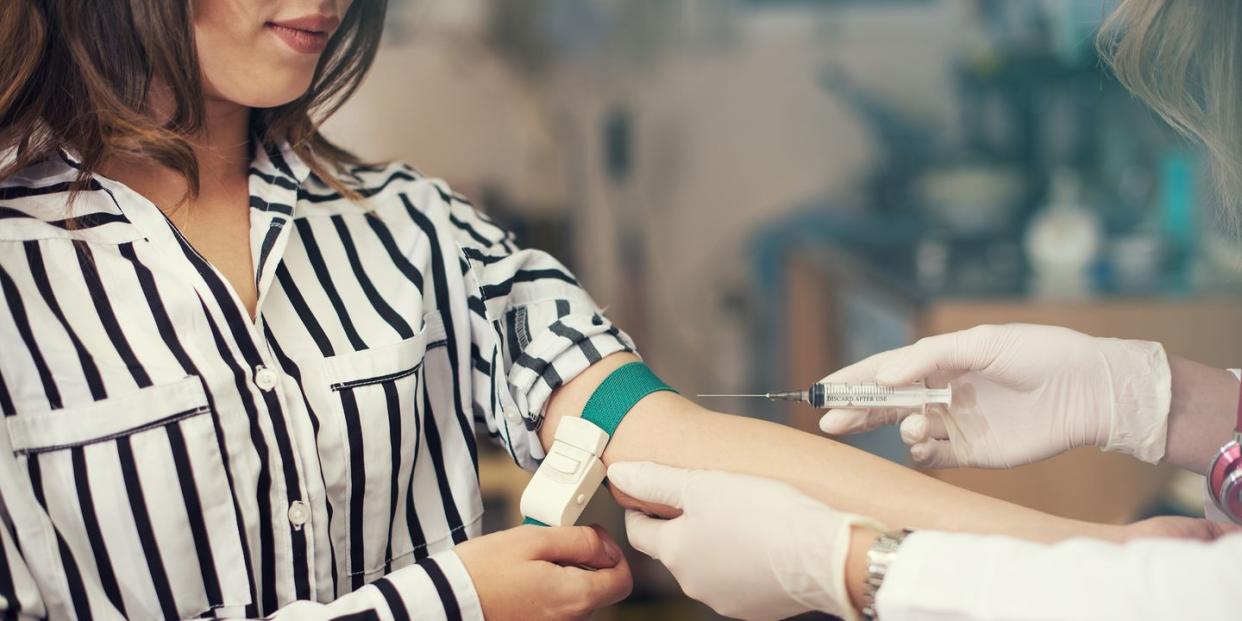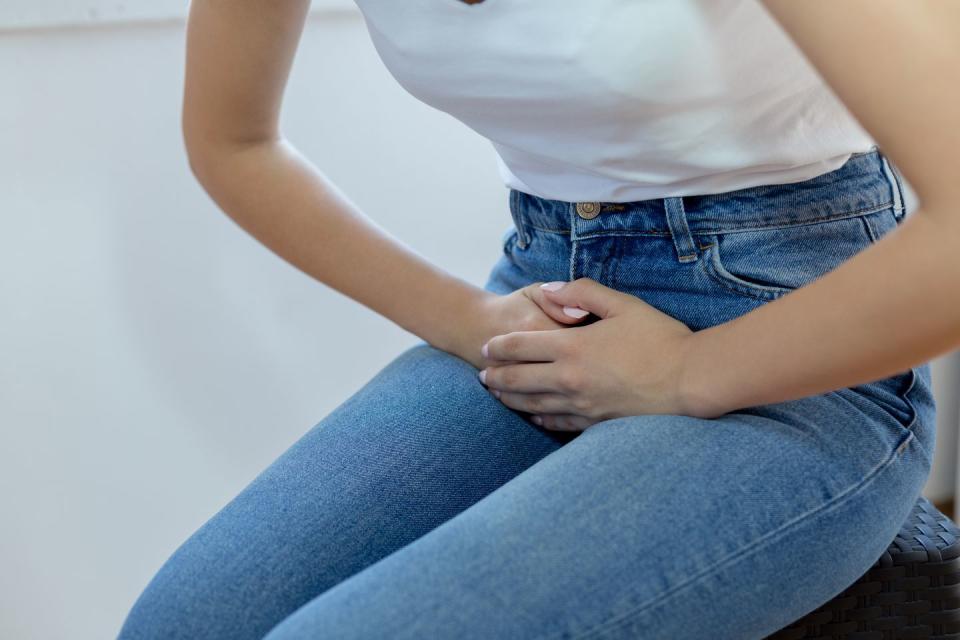A Blood Test to Diagnose Endometriosis has Been Invented

Despite the fact endometriosis affects 10% of all women of reproductive age in the UK, it takes an extraordinarily long time to diagnose.
Figures from Endometriosis UK indicate that there is an average wait of 7.5 years between women first seeing a doctor about their symptoms, and receiving a diagnosis of the gynaecological issue. But a new, revolutionary blood test could change all that.
Currently, the only definitive way to get a formal diagnosis of endometriosis is to undergo a laparoscopy, an operation involving a camera being inserted into the pelvis, which looks for any signs of the condition. But a company called MDNA Life Sciences has today announced it will soon be launching a blood test which claims to be able to detect 90% of endometriosis cases.
How the endometriosis blood test works
The scientists at MDNA, along with experts at Oxford University, have analysed DNA to work out the unique mutations that act as 'biomarkers' for various diseases.
One such disease they've drilled down on is endometriosis, and clinical trials indicate this information can be used to analyse blood samples for the specific biomarkers that are known to cause the gynaecological disease.

Using this scientific basis, MDNA will now create a testing kit which will be available to buy within 9-10 months, theoretically enabling women with concerns about endometriosis-like symptoms to discover whether or not they likely have the disease.
The blood test is estimated to cost around £250, but considering the intense pain endometriosis can cause sufferers who may struggle to get a diagnosis, it may serve as a life-changing development for many women.
Laura Cone told Cosmopolitan she would be 'bleeding three weeks of the month' with pain so excruciating she sometimes went to hospital about it.
But for years, doctors dismissed her symptoms, telling her she had wind, and that she was a hypochondriac. A subsequent diagnosis of endometriosis was vindicating for Laura, but a blood test may have helped her get to the bottom of the problem far more quickly.
Is it the endometriosis blood test too good to be true?
On Endometriosis UK's information pages, it advises: 'Scans, blood tests and internal examinations are not a conclusive way to diagnose endometriosis'.
So is it really likely that a newly discovered blood test may actually serve as a far simpler way to get an answer?
According to the leading charity, it's possible - but not guaranteed. In a statement, Emma Cox, CEO of Endometriosis UK commented:
'Endometriosis UK welcomes new research into endometriosis which is a much under researched area. Whilst the research released today is an interesting study, it is a trial with a small sample size, and a much bigger study covering a diverse range of demographics would be needed to validate the findings.'
The charity went on to say it feared the news of the blood test may 'offer false hopes to women who may have already suffered for many years', and added that when a viable non-surgical method of diagnosing endometriosis does become available, it should be freely available on the NHS.
'Women with the disease already face a financial burden due to loss of earnings and it's not fair to add to this by only offering pioneering treatment and diagnosis options to those who can afford to pay for it,' the CEO commented.
MDNA's blood test will become privately available within the coming years, at which point it will become clear whether or not it is an effective diagnosis tool. If it is found to be, the hope is that it may eventually become available on the NHS. Considering endometriosis is currently thought to cost the UK economy more than £12.3bn a year in treatment, loss of work and healthcare costs, it might serve a financial benefit as well as a health one - but its viability currently remains to be seen.
You Might Also Like



